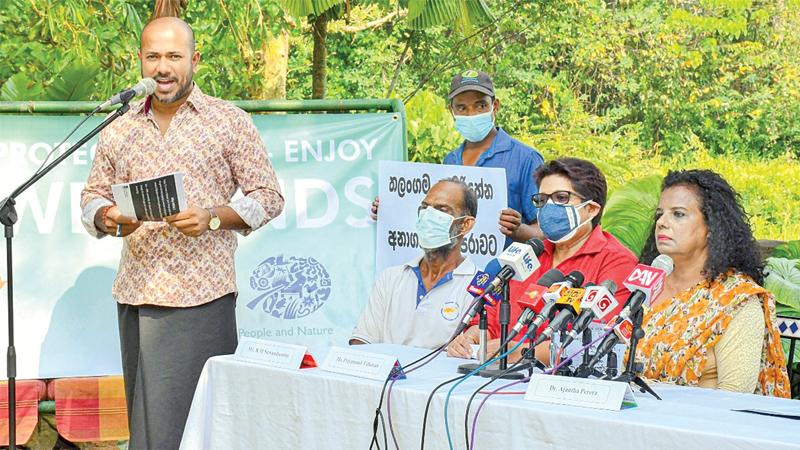
At a time when the Covid-19 global pandemic is raging, when periodic floods and heat waves are battering the planet and with the most recent UN Report on Climate Change delivering the starkest warning by way of a Code Red to humanity on Greenhouse Emissions, Wetlands, which are biodiversity hotspots have proven to be among the most biologically productive ecosystems in the world and often surpassing forests and managed farmlands in the provision of services to humanity. Yet, they are being threatened with further destruction.
Wetlands are indispensable for the countless benefits or ecosystem services that they provide, ranging from freshwater supply, food, livelihoods and building materials, much needed biodiversity, flood control, groundwater recharge, oxygen production, carbon absorption, support to health through provisions of clean air, as also, climate change mitigation and adaption.
With all these at stake at the global and national levels, and with nearly 40% of the Wetlands in and around Colombo having been destroyed to date due to development activities, more destructions are also being threatened with an Elevated Highway from Rajagiriya to Athurugiriya being proposed to be built across 3.1 KM of the Thalangama/Awerihena Wetlands in Colombo. What is at stake is not a mere marsh land or a paddy field, but an internationally recognized, rare, unique and irreplaceable biodiversity hotspot such as the Thalangama /Awerihena Wetlands EPA playing multiple roles such as flood control, carbon absorption and contributing to the global carbon footprint, thus mitigating climate change, oxygen production for the diverse species and for human life, paddy farming and food production, clean air, a calm, serene and scenic environment frequented by bird watchers, joggers, environment researchers, star gazers, film makers and wedding picture takers, given its visual beauty. All of these factors contribute immensely to the authenticity and integrity of this historic area which is considered one of the few green areas left near to Colombo.
It is also to be noted that the Thalangama Wetlands are amongst the seven wetlands included under the City of Colombo, when it emerged as the only South Asian City to be given this honor under the Ramsar Wetlands accreditation scheme and also to be considered the only Capital City in the world to be accredited as a wetland Capital City. All of these shall be adversely impacted upon if a monstrous elevated highway is allowed to run across 3.1 km of the Thalangama Wetlands for this Highway Project, spewing emissions and noise pollution 24/7 which are hitherto unknown to this pristine area inhabited by thousands of residents and rare species, including migrant birds and despite many alternative routes having been listed asavailable.
It can be said with responsibility that the costs of the permanent damages to this irreplaceable asset gifted by nature in a particular place for particular purposes and for invaluable services shall turn out to be far more costly than an alternative route that can be used to construct the elevated highway, so as to avoid building over these sacred wetlands which are listed as Environmentally Protected Areas.
